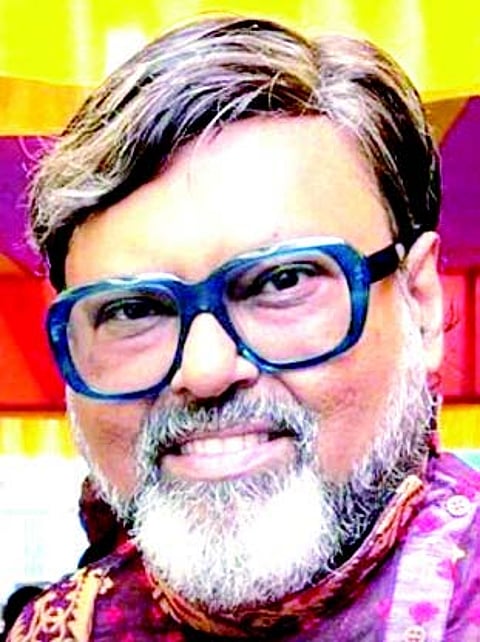

Prime Minister Narendra Modi is scheduled to visit Russia at the invitation of President Vladimir Putin between October 22 and 23 to participate in the 16th BRICS Summit in Kazan along the Volga River. This marks PM Modi’s second trip to Russia this year, with the earlier one being in July, which was his first bilateral trip since assuming office for the third term.
As the BRICS summit approaches, Russian Foreign Minister Sergei Lavrov reiterated the significance of the Russia-India-China troika (RIC), describing it as an “independent mechanism” that continues to exist despite not convening recently due to various circumstances.
However, all eyes are on (If any) the meeting between PM Modi and President Xi Jinping.
However, both had an opportunity for brief interaction at least twice-- first, on the sidelines of the G20 summit at Bali in Indonesia in November 2022 and then during the BRICS summit at Johannesburg in South Africa in August 2023.
And during their brief interactions, both agreed to step up efforts to resolve the military stand-off along the LAC.
It may be noted that despite the significance of Modi's visit to Russia for BRICS amid the Ukraine war, India has maintained long-standing ties with Russia, even as New Delhi’s latest initiatives have been to expand its growing security partnerships with the US and other Western allies.
India has cautiously treaded a delicate balance by refraining from condemning Russia's war in Ukraine, instead offering itself as a mediator for a peace.
Russian President Vladimir Putin on Friday said it is difficult to specify a timeline for ending the prolonged war in Ukraine, but asserted that his country will win, as he appreciated Prime Minister Narendra Modi’s concern over the situation.
Days ahead of the 16th BRICS Summit to be hosted by him, Putin also endorsed Modi's description of the grouping, saying the Indian leader had “aptly” noted that it is “not an anti-Western one but a non-Western one”.
He also made it clear the grouping, which has since been expanded from five initial members to include five more countries, should not be seen as a “bloc-style organisation”.
WHY TIES WITH RUSSIA IS SO CRUCIAL
In the current context, Russia remains a crucial supplier of discounted oil and military equipment to India, but Moscow's growing ties with China and its isolation from the West have been enough reasons to be cautious. The ongoing conflict in Ukraine has prompted India to seek alternative sources of arms and thus moving away from Russian suppliers.
On the other hand, given the current context, India has become one of the largest buyers of Russian oil, providing Russia with an export market after it was cut off by traditional European buyers. This has also hugely reshaped and restructured the economic relationship between the two countries, with New Delhi making huge savings.
The BRICS group, which takes its name from the initials of the original five members-Brazil, Russia, India, China, and South Africa-expanded in 2009. It has since grown to include other countries from West Asia such as Iran.
However, going back to the India-China scenario, one can expect that PM Modi and Chinese leaders will hold bilateral talks, which would help in bolstering the initiatives for peace. Despite lengthy discussions resulting in the mutual withdrawal of troops from certain sites along the LAC, such as Galwan Valley, the northern and southern banks of Pangong Tso, Gogra Post, and Hot Springs, the standoff remains.
It may be appreciated that New Delhi has been advocating peace along the border regions by holding military commanders-level talks, and the National Security Advisor level meetings. From India’s side, NSA Ajit Doval held multiple meetings with Chinese Foreign Minister Wang Yi and also EAM S Jaishankar held bilateral meetings with Yi.
Earlier in October, the Indian Army Chief Upendra Dwivedi, said the situation with China is “stable”. However, he added the situation is not “normal” and dubbed it “sensitive”.
“The situation is stable at LAC, but not normal and it’s sensitive. We will remain there till things don’t become normal,” said the Army chief. “As far as China is concerned, it has been intriguing our minds for quite some time. With China, you have to compete, cooperate, coexist, confront, and contest... So, what's the situation today? It's stable, but it's not normal and it”s sensitive," he said at the Chanakya Defence Dialogue.
India has been using multilateral forums to boost its standing on the world stage. For New Delhi, BRICS offers such a platform to raise the voice of the force called Global South.
For New Delhi, BRICS and its expansion as a multipolar base to expand its economic outreach in West Asia and beyond the region.
Also, it may be noted that BRICS’ diplomacy focuses on a development pattern that fits with New Delhi’s core interests, dealing with energy security, fighting terrorism and climate change financing.
The bloc tries to highlight non-traditional security threats and encourage economic security; it has highlighted non-traditional threats as part of a broader security agenda.
India’s shift to a multi-alignment foreign policy helps it be a part of a Western grouping like QUAD (Australia, India, Japan, and the United States) and non-Western blocs like BRICS and last but not the least, for New Delhi, BRICS provides significant leverage for promoting India’s global leadership aspirations.
(Writer is senior
journalist and former Senior Associate Editor,
O Heraldo, Goa.)